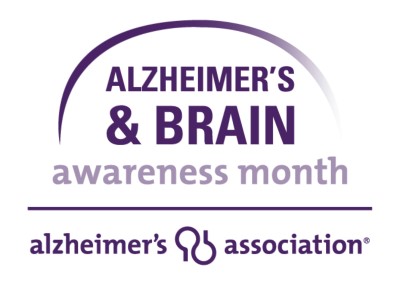It’s a conversation no family wants to have, but one that is vitally important – talking to a loved one about memory loss or cognitive decline.
Guest article by the Alzheimer’s Association
Mary Foss of Eagan, Minnesota, said she knew it was time to broach this sensitive topic with her husband, Darrell after she noticed he was having difficulty doing the home improvement projects he had enjoyed all is life.
“Darrell would spend hours building and fixing things around the house – it was his hobby,” said Mary Foss. “But it got to point where he was having trouble doing even routine tasks. He would get frustrated and soon began doing less and less. I knew something was wrong, but I dismissed it for a while.”
As Darrell’s retreat from activities he once loved grew, so did Mary’s concern. Eventually, Mary and the couple’s adult daughter, Michele, decided to share their concerns.
“We just told him that something is not right, and you need to see a doctor and figure out what it is,” Foss said. “I thought maybe he had a mini-stroke or a brain tumor. We were shocked when the diagnosis came back as mild cognitive impairment, possibly Alzheimer’s.”
The Foss family’s story is not uncommon. Talking about memory or cognition problems with a family member can be challenging for many families. Denial, fear, and difficulty initiating conversations about this sensitive subject are common barriers.
“Alzheimer’s disease is challenging, but talking about it doesn’t have to be,” said Ruth Drew, Director of Information and Support Services at the Alzheimer’s Association. “Family members are typically the first to notice when something is not quite right, and it’s important to discuss these concerns and follow up with your doctor.”
To help families overcome common communication obstacles, the Alzheimer’s Association offers 6 Tips for Approaching Alzheimer’s, a list of best practices for talking about the disease with someone who may be experiencing symptoms. [TCV Update 6/30/2018: The link to the one-page document is no longer available.] These include:
- Have the conversation as early as possible.
Addressing memory or cognition problems early provides an opportunity to identify the cause and act before a crisis occurs. - Think about who’s best suited to initiate the conversation.
If there is a family member, close friend or trusted advisor who holds sway, include them in the conversation. - Practice conversation starters.
Be thoughtful in your approach; for example, consider an open-ended question, such as, “I’ve noticed a few changes in your behavior lately, and I wanted to see if you’ve noticed these changes as well.” - Offer your support and companionship.
Let your family member or friend know that you’re willing to accompany them to the doctor, and offer your continuous support throughout the diagnosis process. - Anticipate gaps in self-awareness.
Someone experiencing cognitive decline may not be aware of concerning behavior. Be prepared to navigate confusion, denial, and withdrawal, as people may not want to acknowledge their mental functioning is declining. - Recognize the conversation may not go as planned.
A family member may not be open to the discussion. They may get angry, upset, or simply refuse to talk about it. Unless it’s a crisis, don’t force the conversation. Take a step back, regroup and revisit the subject in a week or two.
“We know that initiating conversations can be difficult; these tips are aimed at making a discussion about Alzheimer’s less daunting and more productive,” said Drew. “We also know from talking to families that, while individuals may wish they didn’t have Alzheimer’s, they never regret being able to prepare for the future, play an active role in their own financial and care planning, and make their wishes known to their family members.”
While receiving the diagnosis was difficult, Mary Foss says it also provided a path forward.
“As difficult as it was to receive Darrell’s diagnosis, it finally provided an answer to what we were facing,” Foss said. “We took a few days to grieve, but then we focused our attention on getting educated about the disease and what we could do to fight it. We are staying active and focusing on the things that are most important to us.”

June is Alzheimer’s & Brain Awareness Month, a time dedicated to increasing public awareness of Alzheimer’s disease and available resources. For more on these conversation tips, go to alz.org/6Tips [for a one-page PDF document].
[TCV Update 6/30/2018: The link to the one-page document is no longer available.]
The Alzheimer’s Association is the leading voluntary health organization in Alzheimer’s care, support, and research. Our mission is to eliminate Alzheimer’s disease through the advancement of research; to provide and enhance care and support for all affected; and to reduce the risk of dementia through the promotion of brain health. Our vision is a world without Alzheimer’s®. Visit alz.org or call 800-272-3900.









